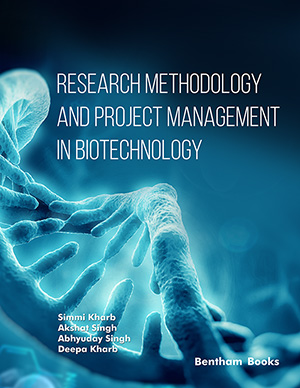
Abstract
Background: Although cannabinoid consumption represents a current social and health problem, especially in a historical context characterized by an open orientation for recreational and therapeutic purposes, risks regarding the neurotoxicity of such substances are frequently overlooked.
Objective: The present systematic review aims to summarize the available evidence regarding the mechanism of cannabinoids-induced brain damage as a substrate of neurological, psychiatric, and behavioral effects. Another objective is to provide support for future investigations and legislative choices.
Methods: The systematic literature search through PubMed and Scopus and a critical appraisal of the collected studies were conducted. Search terms were “(("Cannabinoids" OR "THC" OR "CBD") AND "Brain” AND ("Damage" OR "Toxicity"))” in the title and abstracts. Studies were included examining toxic effects on the brain potentially induced by cannabinoids on human subjects.
Results: At the end of the literature selection process, 30 papers were considered for the present review. The consumption of cannabinoids is associated with the development of psychiatric, neurocognitive, neurological disorders and, in some cases of acute consumption, even death. In this sense, the greatest risks have been related to the consumption of high-potency synthetic cannabinoids, although the consumption of phytocannabinoids is not devoid of risks.
Conclusion: The research carried out has allowed to highlight some critical points to focus on, such as the need to reinforce the toxic-epidemiologic monitor of new substances market and the importance of information for both medical personnel and general population, with particular attention to the mostly involved age groups.
Keywords: Toxicology, cannabinoids, cannabis, brain damage, toxicity, THC, CBD.
[http://dx.doi.org/10.1152/physrev.00002.2016] [PMID: 27630175]
[http://dx.doi.org/10.3389/fpls.2016.00019] [PMID: 26870049]
[http://dx.doi.org/10.1039/jr9400000649]
[http://dx.doi.org/10.1021/ja01858a058]
[http://dx.doi.org/10.1021/ja01062a046]
[http://dx.doi.org/10.1038/365061a0] [PMID: 7689702]
[http://dx.doi.org/10.1016/j.ejim.2018.01.004] [PMID: 29307505]
[http://dx.doi.org/10.1126/science.1470919] [PMID: 1470919]
[PMID: 32980261]
[http://dx.doi.org/10.1038/nrd2553] [PMID: 18446159]
[http://dx.doi.org/10.1007/s11481-009-9177-z] [PMID: 19847654]
[http://dx.doi.org/10.1111/bph.13250] [PMID: 26218440]
[http://dx.doi.org/10.1111/bph.12944] [PMID: 25257544]
[http://dx.doi.org/10.1111/bph.14440] [PMID: 29981240]
[http://dx.doi.org/10.1124/mol.118.111864] [PMID: 29669714]
[http://dx.doi.org/10.1016/bs.apha.2017.05.001] [PMID: 28826533]
[http://dx.doi.org/10.2174/1570159X19666210412101929] [PMID: 33845747]
[http://dx.doi.org/10.1016/j.pnpbp.2012.04.017] [PMID: 22561602]
[http://dx.doi.org/10.2174/0929867054020864] [PMID: 15974991]
[http://dx.doi.org/10.1016/j.drugalcdep.2014.08.005] [PMID: 25220897]
[http://dx.doi.org/10.1007/978-3-319-20825-1_3] [PMID: 26408158]
[http://dx.doi.org/10.1523/JNEUROSCI.0442-05.2005] [PMID: 16033894]
[http://dx.doi.org/10.1016/j.neuroscience.2005.01.026] [PMID: 16344153]
[http://dx.doi.org/10.1038/nature02913] [PMID: 15372034]
[http://dx.doi.org/10.1016/S0896-6273(02)00695-5] [PMID: 12062024]
[http://dx.doi.org/10.1016/j.neuron.2016.01.023] [PMID: 26898775]
[http://dx.doi.org/10.1038/nn.3053] [PMID: 22388959]
[http://dx.doi.org/10.1016/j.neuron.2008.01.029] [PMID: 18367089]
[http://dx.doi.org/10.1073/pnas.87.5.1932] [PMID: 2308954]
[http://dx.doi.org/10.1111/j.1432-1033.1995.tb20780.x] [PMID: 7556170]
[http://dx.doi.org/10.1007/978-3-319-20825-1_6] [PMID: 26408161]
[http://dx.doi.org/10.1002/glia.20983] [PMID: 20468046]
[http://dx.doi.org/10.1111/bph.14625] [PMID: 30767215]
[http://dx.doi.org/10.1371/journal.pmed.1000097] [PMID: 19621072]
[http://dx.doi.org/10.1016/j.jclinepi.2009.06.006] [PMID: 19631507]
[http://dx.doi.org/10.1002/hup.2594] [PMID: 28557129]
[http://dx.doi.org/10.1371/journal.pone.0044864] [PMID: 23049760]
[http://dx.doi.org/10.1001/archpsyc.58.10.917] [PMID: 11576029]
[http://dx.doi.org/10.1080/10550490590899853] [PMID: 15804877]
[http://dx.doi.org/10.1192/bjp.178.2.101] [PMID: 11157422]
[http://dx.doi.org/10.1038/sj.npp.1300496] [PMID: 15173844]
[http://dx.doi.org/10.3389/fnbeh.2011.00001] [PMID: 21267359]
[http://dx.doi.org/10.1192/bjp.bp.109.064220] [PMID: 19949195]
[http://dx.doi.org/10.1016/j.euroneuro.2015.03.011] [PMID: 26068702]
[http://dx.doi.org/10.1146/annurev-psych-113011-143739] [PMID: 22804774]
[http://dx.doi.org/10.1016/j.neubiorev.2016.03.010] [PMID: 26987641]
[http://dx.doi.org/10.1016/j.mehy.2004.02.043] [PMID: 15236773]
[http://dx.doi.org/10.1016/j.ntt.2004.11.003] [PMID: 15734274]
[http://dx.doi.org/10.1016/j.neubiorev.2010.04.008] [PMID: 20451551]
[http://dx.doi.org/10.1073/pnas.1206820109] [PMID: 22927402]
[http://dx.doi.org/10.1001/archpsyc.65.6.694] [PMID: 18519827]
[http://dx.doi.org/10.1001/jamapsychiatry.2015.3278] [PMID: 26842658]
[http://dx.doi.org/10.1016/j.pediatrneurol.2016.09.004] [PMID: 27789118]
[http://dx.doi.org/10.1016/0376-8716(91)90072-7] [PMID: 1657563]
[http://dx.doi.org/10.1002/hipo.20554] [PMID: 19156848]
[http://dx.doi.org/10.1212/WNL.0000000000000446] [PMID: 24789863]
[http://dx.doi.org/10.1177/0269881106059939] [PMID: 16510477]
[http://dx.doi.org/10.1038/npp.2014.67] [PMID: 24633558]
[http://dx.doi.org/10.1038/297681a0] [PMID: 7088155]
[http://dx.doi.org/10.1016/S0006-8993(00)02739-6] [PMID: 10986361]
[http://dx.doi.org/10.1016/0006-8993(87)91576-9] [PMID: 2825925]
[http://dx.doi.org/10.1016/0091-3057(91)90380-K] [PMID: 1666926]
[http://dx.doi.org/10.1016/0006-8993(88)91597-1] [PMID: 2834017]
[http://dx.doi.org/10.1016/S0163-7258(02)00256-5] [PMID: 12182964]
[http://dx.doi.org/10.1523/JNEUROSCI.18-14-05322.1998] [PMID: 9651215]
[http://dx.doi.org/10.1523/JNEUROSCI.4745-13.2014] [PMID: 24741043]
[http://dx.doi.org/10.1016/j.drugalcdep.2014.12.020] [PMID: 25577478]
[http://dx.doi.org/10.1016/j.neuroimage.2011.09.046] [PMID: 21982932]
[http://dx.doi.org/10.1038/npp.2011.227] [PMID: 21956445]
[http://dx.doi.org/10.1196/annals.1308.053] [PMID: 15251914]
[http://dx.doi.org/10.1007/s00213-004-1885-8] [PMID: 15205869]
[http://dx.doi.org/10.1093/brain/aws136] [PMID: 22669080]
[http://dx.doi.org/10.1017/S003329171100050X] [PMID: 21466751]
[http://dx.doi.org/10.1037/a0026716] [PMID: 22369222]
[http://dx.doi.org/10.1037/a0023034] [PMID: 21480730]
[http://dx.doi.org/10.1016/j.yebeh.2017.01.031] [PMID: 28237318]
[http://dx.doi.org/10.1155/2015/323706] [PMID: 25654095]
[http://dx.doi.org/10.1089/ars.2010.3576] [PMID: 20812869]
[PMID: 25162900]
[http://dx.doi.org/10.1111/j.1742-4658.2008.06765.x] [PMID: 19087195]
[http://dx.doi.org/10.1073/pnas.89.9.3825] [PMID: 1315042]
[http://dx.doi.org/10.1523/JNEUROSCI.16-14-04322.1996] [PMID: 8699243]
[http://dx.doi.org/10.1016/j.neuroscience.2004.08.044] [PMID: 15541895]
[http://dx.doi.org/10.1111/j.1742-4658.2007.05975.x] [PMID: 17666109]
[http://dx.doi.org/10.1046/j.1471-4159.2003.02244.x] [PMID: 15009671]
[http://dx.doi.org/10.1016/j.nbd.2006.04.010] [PMID: 16762556]
[http://dx.doi.org/10.1111/j.1471-4159.2007.04892.x] [PMID: 17868306]
[http://dx.doi.org/10.1038/sj.cdd.4401284] [PMID: 12934069]
[http://dx.doi.org/10.1097/00004647-200405000-00011] [PMID: 15129189]
[http://dx.doi.org/10.1074/jbc.M411642200] [PMID: 15657045]
[http://dx.doi.org/10.2174/138161208785740117] [PMID: 18781978]
[http://dx.doi.org/10.1038/sj.bjp.0705464] [PMID: 14522843]
[http://dx.doi.org/10.1046/j.1471-4159.2001.00333.x] [PMID: 11331425]
[http://dx.doi.org/10.1038/sj.cdd.4401442] [PMID: 15375383]
[http://dx.doi.org/10.1111/j.1471-4159.2008.05278.x] [PMID: 18248609]
[http://dx.doi.org/10.1016/j.bcp.2006.06.037] [PMID: 16914119]
[http://dx.doi.org/10.1124/mol.64.5.1189] [PMID: 14573769]
[http://dx.doi.org/10.1038/sj.bjp.0705304] [PMID: 12813001]
[http://dx.doi.org/10.1016/j.neuropharm.2021.108478] [PMID: 33600843]
[http://dx.doi.org/10.1007/s12640-021-00369-3] [PMID: 33945101]
[http://dx.doi.org/10.1111/j.1476-5381.2011.01280.x] [PMID: 21323910]
[http://dx.doi.org/10.1523/JNEUROSCI.19-08-02987.1999] [PMID: 10191316]
[http://dx.doi.org/10.1016/S0169-328X(02)00174-2] [PMID: 12007836]
[http://dx.doi.org/10.1159/000068915] [PMID: 12624527]
[http://dx.doi.org/10.1007/BF00431452] [PMID: 6441947]
[http://dx.doi.org/10.1001/jama.287.9.1123] [PMID: 11879109]
[http://dx.doi.org/10.1523/JNEUROSCI.21-17-06475.2001] [PMID: 11517236]
[http://dx.doi.org/10.1038/35097089] [PMID: 11586361]
[http://dx.doi.org/10.1080/15563650.2016.1190980] [PMID: 27251903]
[http://dx.doi.org/10.1002/dta.1483] [PMID: 23696237]
[http://dx.doi.org/10.1097/MAJ.0b013e31824cf5c2] [PMID: 22627260]
[http://dx.doi.org/10.1056/NEJMp1505328] [PMID: 26154784]
[http://dx.doi.org/10.5811/westjem.2016.2.29519] [PMID: 27330661]
[http://dx.doi.org/10.3109/15563650.2011.609822] [PMID: 21970775]
[http://dx.doi.org/10.3389/fnbeh.2011.00060] [PMID: 22007163]
[http://dx.doi.org/10.1007/s13181-014-0460-x] [PMID: 25652342]
[http://dx.doi.org/10.1097/PEC.0000000000000288] [PMID: 25407034]
[http://dx.doi.org/10.1097/01.mej.0000194405.38206.f2] [PMID: 16679885]
[http://dx.doi.org/10.1007/s00431-017-2872-5] [PMID: 28210835]
[http://dx.doi.org/10.1503/cmaj.071178] [PMID: 18559804]
[http://dx.doi.org/10.1007/s13181-021-00849-0] [PMID: 34117620]
[http://dx.doi.org/10.2478/aiht-2020-71-3301] [PMID: 32597140]
[http://dx.doi.org/10.1016/j.seizure.2016.01.004] [PMID: 26800377]
[http://dx.doi.org/10.1111/j.1468-1331.2010.03328.x] [PMID: 21362108]
[http://dx.doi.org/10.1007/s00415-012-6739-4] [PMID: 23180178]
[http://dx.doi.org/10.1586/ern.13.4] [PMID: 23369054]
[http://dx.doi.org/10.1159/000357742] [PMID: 24457846]
[http://dx.doi.org/10.3389/fonc.2021.649555] [PMID: 34094937]
[http://dx.doi.org/10.1016/S0140-6736(07)61162-3] [PMID: 17662880]
[http://dx.doi.org/10.1093/schbul/sbi034] [PMID: 16020551]
[http://dx.doi.org/10.1093/schbul/sbp126] [PMID: 19915168]
[http://dx.doi.org/10.1093/schbul/sbt181] [PMID: 24345517]
[http://dx.doi.org/10.1016/S2215-0366(17)30233-X] [PMID: 28705600]
[http://dx.doi.org/10.1080/15504263.2019.1674991] [PMID: 31647377]
[PMID: 34527032]
[http://dx.doi.org/10.1586/ern.11.76] [PMID: 21721915]
[http://dx.doi.org/10.1016/j.dcn.2015.10.004] [PMID: 26602958]
[http://dx.doi.org/10.1080/j.1440-1614.2005.01678.x] [PMID: 16168032]
[http://dx.doi.org/10.1016/j.neuropharm.2017.06.018] [PMID: 28634109]
[http://dx.doi.org/10.3390/ijerph16214149] [PMID: 31661851]
[http://dx.doi.org/10.1038/s41386-020-0667-2] [PMID: 32268347]
[http://dx.doi.org/10.1038/npp.2017.198] [PMID: 28853439]
[http://dx.doi.org/10.1046/j.1460-9568.1999.00576.x] [PMID: 10215912]
[http://dx.doi.org/10.1038/npp.2009.110] [PMID: 19710631]
[http://dx.doi.org/10.1016/j.pbb.2006.09.021] [PMID: 17116324]
[http://dx.doi.org/10.3238/arztebl.2015.0271] [PMID: 25939318]




























